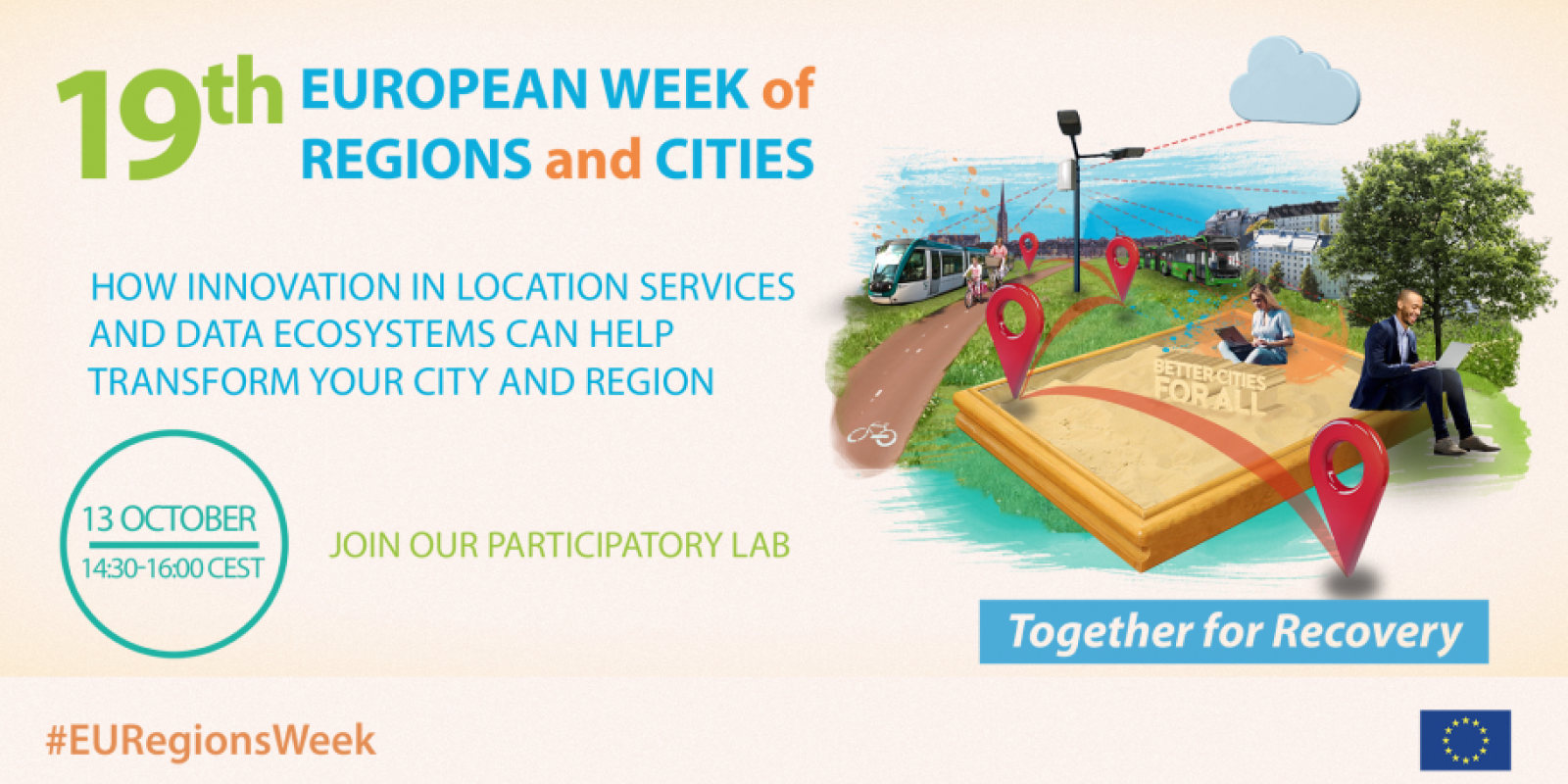Intermediate
Participatory lab on "how innovation in location services and data ecosystems can help transform your city and region"
Published at 09/12/2022
Last update 28/03/2023
Training

Other
What is it about?
This interactive workshop will provide you with practical insights throughout stimulating discussions.
It will build on the learnings drawn from two pan-European activities carried out under the ELISE Action of the ISA2 European Interoperability Programme, involving more than 20 European cities.
Following a plenary introduction, you will be able to choose to participate in one of the two following journeys:
- Journey 1: Innovative use of location data and technologies to improve public services – Through this journey, you will learn how European cities and regions successfully use location data and technologies to improve their public services. You will get familiar with the results of a state-of-the-art study based on a large-scale survey of 150 local and regional authorities and 13 in-depth interviews. During the second part of the session, you will have the chance to dive into the case studies demonstrating the innovative use of location data and technologies in generating public value and considering the transferability of these solutions to other local/regional environments. The case studies are based on the experience of the cities of: Navarra (ES), Leuven (BE) and Cascais (PT). You will be invited to share your experience and feedback and raise your awareness and understanding of the potential of using location technology and information at the local and regional level.
- Journey 2: Regional and local data-driven innovation through collective intelligence and sandboxing – This journey is going to explore the main obstacles and the key enablers for the development of data ecosystems in different city contexts, and to discuss the potential of a “sandboxing” methodology to help local administrations test innovative data-driven solutions. Participants will be presented the results of an analysis of the data ecosystems of seven different European cities: Barcelona (ES), Bordeaux Metropole (FR), Helsinki (FI), Milan (IT), Santander (ES), Poznan (PL) and Rome (IT). Participants will have the opportunity to learn what obstacles these cities are facing, and what enablers they have set in place, also discussing how these findings could be applied in other local contexts. The journey is going to focus on how various cities taking part in the study have made use of a sandboxing methodology to strengthen their data ecosystems. Here participants will discuss the potential of applying such a methodology in their own local contexts to the purpose of experimenting with innovative data-driven tools, approaches and models.




